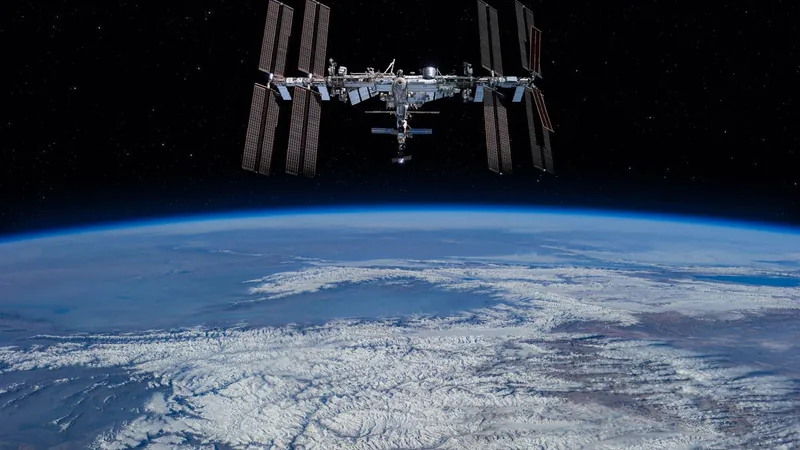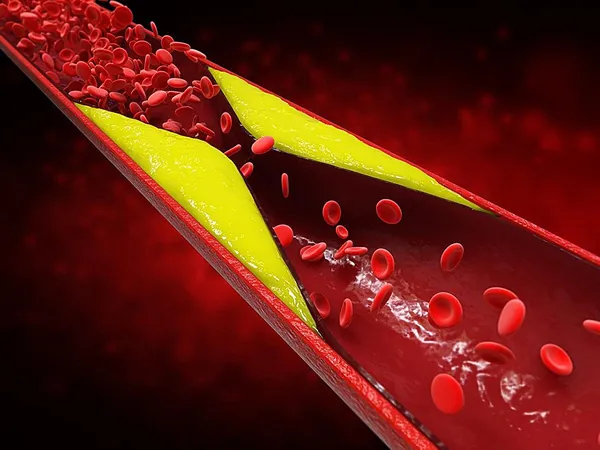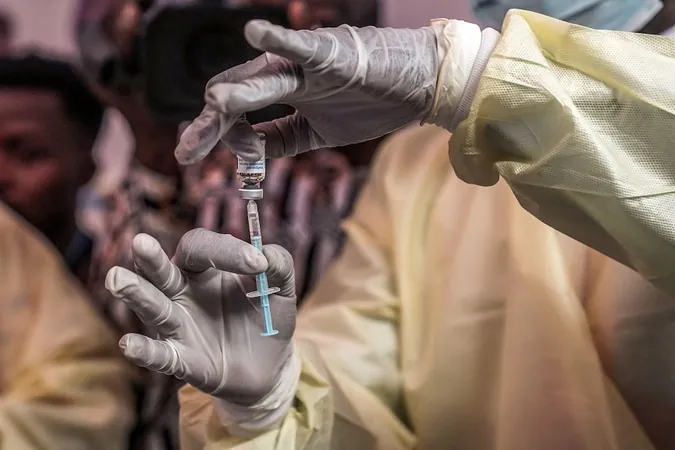
Air Leak Crisis at the International Space Station: U.S. and Russia at an Impasse
2024-11-20
Author: Ming
Air Leak Crisis at the International Space Station
The International Space Station (ISS) is facing a critical air leakage issue, and mounting tensions between the United States and Russia are complicating efforts for a resolution. The station is reportedly losing more than three pounds of air each day from a docking port known as the PrK module, which is under Russian jurisdiction. This troubling leak has persisted since 2019, raising alarms within NASA regarding potential severe implications for the station's operational longevity.
Repair Attempts and Diverging Diagnoses
Although repair attempts have been made, they have failed to fully resolve the leaking issue. According to Bob Cabana, a former NASA astronaut and current head of the agency's International Space Station Advisory Committee, there is a significant lack of consensus between U.S. and Russian officials regarding the root cause of these leaks and the degree of seriousness they pose. “They don’t have a common understanding of what the likely root cause is, or the severity of the consequences of these leaks,” Cabana stated.
Differing Perspectives on Causes
Russian engineers attribute the cracks to "high cyclic fatigue caused by micro-vibrations," while NASA's stance is that the problem is "multi-causal," stemming from pressure and mechanical stress, residual stress, material properties, and environmental exposures. This divergence in diagnoses has made collaboration and effective action nearly impossible.
Stalemate on Safety Assessments
Moreover, the two parties disagree on the potential risks associated with the leaks. While the Russian team believes ongoing operations of the PrK module can safely continue without catastrophic consequences, NASA remains skeptical, voicing concerns over the module's structural integrity and the very real possibility of a catastrophic failure if the situation is not addressed.
Conclusion and Future Implications
As it stands, both sides find themselves in a stalemate. Russia is confident in their safety assessments but lacks concrete evidence to support their claims. Meanwhile, NASA is wary of the situation but cannot definitively prove that continued operations are unsafe. “This is an engineering problem, and good engineers should be able to agree on it,” Cabana remarked, underscoring the urgent need for a unified approach toward this pressing issue.
With growing concerns about the long-term viability of the ISS and the ongoing tension between two nations that have historically collaborated in space exploration, the future of the station—and the safety of its crew—hangs precariously in the balance. Will the two powers be able to set aside differences for the sake of science, or could this air leak signal a deeper divide in international space cooperation?


 Brasil (PT)
Brasil (PT)
 Canada (EN)
Canada (EN)
 Chile (ES)
Chile (ES)
 España (ES)
España (ES)
 France (FR)
France (FR)
 Hong Kong (EN)
Hong Kong (EN)
 Italia (IT)
Italia (IT)
 日本 (JA)
日本 (JA)
 Magyarország (HU)
Magyarország (HU)
 Norge (NO)
Norge (NO)
 Polska (PL)
Polska (PL)
 Schweiz (DE)
Schweiz (DE)
 Singapore (EN)
Singapore (EN)
 Sverige (SV)
Sverige (SV)
 Suomi (FI)
Suomi (FI)
 Türkiye (TR)
Türkiye (TR)